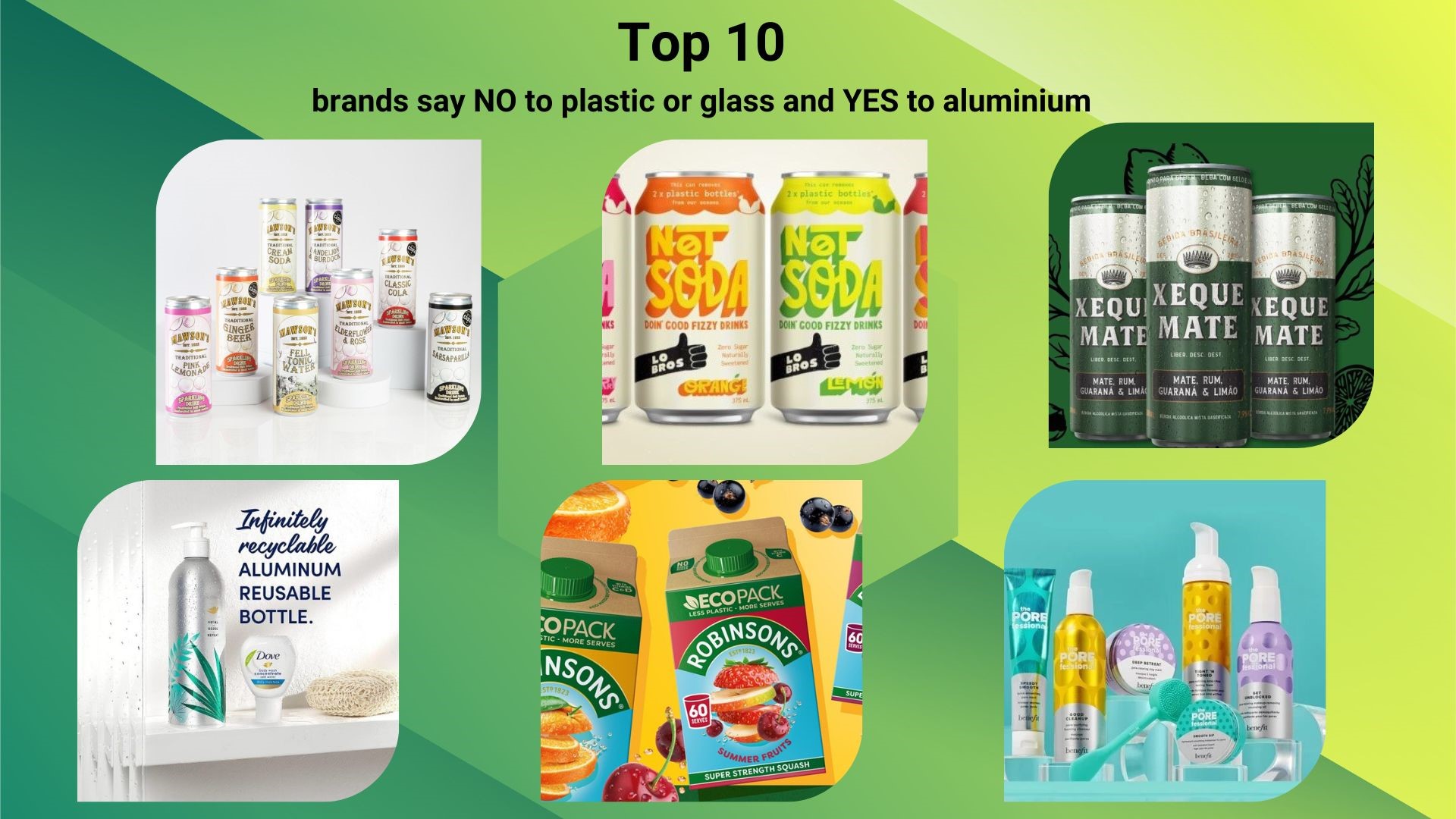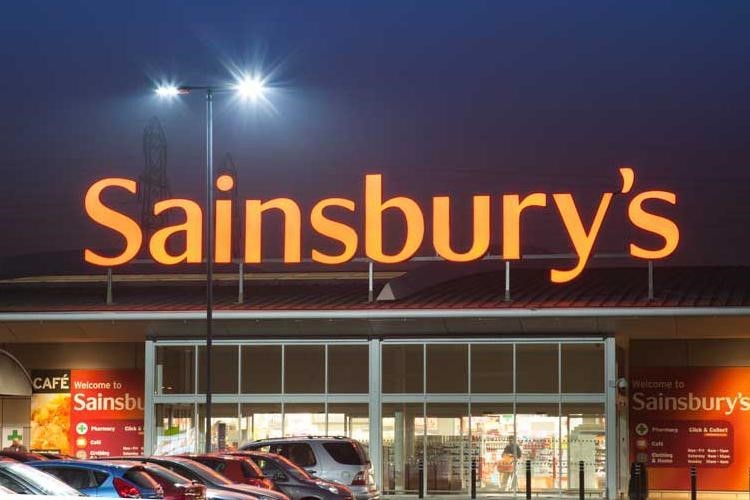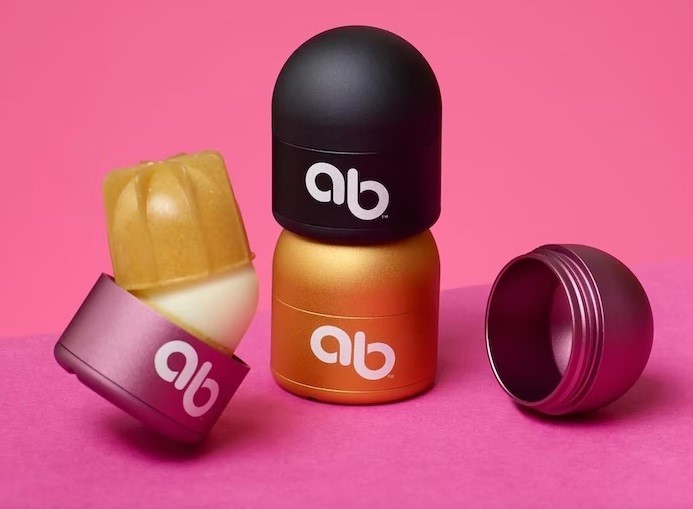

Aluminium’s ability to form any shape and its protective qualities have made the metal a popular choice in packaging. Moreover, the conscious efforts to achieve sustainability through a circular economy have turned aluminium into an inevitable alternative, given that it is infinitely recyclable without losing its original properties. A comparative study between plastic, glass, and aluminium has shown that non-ferrous metal is the most preferred material for packaging because it has three-in-one qualities - environment-friendly, lightweight, and easy to transport.

A study in the peer-reviewed journal ‘Science Advances’ showed that out of 8.3 billion tonnes of plastic produced, 6.3 became plastic waste, and only 9 per cent of that was recycled. In contrast, 75 per cent of recycled aluminium is now commonly used in beverage cans.
This is one of the primary reasons why so many global beverage companies and personal care brands have found an alternative packaging solution in aluminium. Many have shifted from plastic to aluminium or from glass to aluminium.
Lo Bros: This famous beverage maker has launched its fizzy drink ‘NOT SODA’ in 100 per cent recyclable and eco-friendly aluminium cans to discard the application of single-use plastic packaging solutions. The company’s main objective behind introducing the product in aluminium packaging is to lessen two plastic bottles on the ocean bed against each can. This is a perfectly placed initiative that will lower the carbon content and purify the planet of plastic waste. Ritchies and Drake have collaborated with Lo Bros to be part of this programme and extract two million plastic bottles from the ocean bed by 2025.
Anderson Valley Brewing Company (AVBC): The California-based brewery has started saying NO to glass bottles and YES to aluminium cans for is beer packaging. This has not only moved the company towards sustainability but lowered trucking by about 60 per cent because cans are lighter and easy to transport.
Xeque Mate Bebidas by Alex Freire and Gabriel Rochael: The beverage blend of rum, mate, guarana, and lemon is available in 355-centimetre aluminium can. Initially sold in glass bottles, the decision to switch to aluminium cans is influenced by the increasing number of beverage companies using metal to lower waste creation and encourage consumption in public areas. The packaging of the product started after spending R$ 100,000 to set up a 100 m2 facility and purchase aluminium canning equipment.
Sainsbury's: UK-based Sainsbury's is completely shifting to infinitely recyclable aluminium instead of plastic for making their flagship coffee pods. This is an attempt at sustainability after successful experimentation last year by morphing some of its coffee pod packaging from plastic to aluminium to aid customers in recycling their used coffee pods at home. The users only had to empty the aluminium pods, wash them and put them in their local kerbside recycling bin.
The supermarket chain claims this new aluminium packaging might save 10 million pieces of plastic annually.

Robinsons: The squash company is testing a new way of pressure packing by using Ecopacks instead of plastic bottles. These innovative cartons are made from 89% plant-based material and contain a thin aluminium layering to keep the liquid safe inside. The goal of Robinsons' Ecopack is to reduce waste by using 85% less plastic per serving than a one-litre bottle of Robinsons Double Concentrate.
Asda: One of the largest grocery chains in the United Kingdom has taken a significant step towards eliminating single-use plastic. The firm has replaced its milk bottle plastic caps with ones made of recyclable aluminium and paper. This change is part of Asda's commitment to minimising plastic waste and assisting in environmental protection.
The new milk bottle caps are lightweight since made of a combination of aluminium and paper. The other advantage of using recyclable milk bottle caps is recyclable, which reduces the use of energy and curbs carbon dioxide discharge during production.
Lakeland Artisan: Run by husband-wife Geoff and Mary Monkman, Lakeland Artisan has also adoptd aluminium cans for its traditional sparkling soft drink, as an attempt to move towards sustainability. The product will be available in 250ml lightweight aluminium cans, reducing packaging costs and creating a circular economy.
Besides beverage companies, many personal care brands have also switched from plastic or other materials to aluminium as their packaging solutions.
Above & Beyond (A&B): This Personal care packaging brand has entirely revolutionised the Refill-at-home packaging solutions with the introduction of a lip balm in an aluminium case. The company claims to negate the application of single-use plastic with the incorporation of this innovative aluminium packaging idea.

Though it is questionable how much plastic can be eradicated through this drive, the company website proudly explains: “OK, so single-use lip balms probably aren’t the main problem keeping Attenborough up at night. But hundreds of millions of them are tossed into landfill every year. And given a choice between a lip balm that kills the planet a bit and one that doesn’t kill it at all … well, we know what we’d pick.”
Dove: A brand like Dove has also embraced aluminium packaging solution for its body wash. They have recently launched the Dove Body Wash in recyclable aluminium packaging and high-density polyethylene (HDPE) packaging to address environmental concerns. The package includes a pump container made of aluminium or HDPE, which is meant to be reused. Dove has introduced this packaging to encourage customers to choose refill packets made of biodegradable materials rather than single-use plastic bottles. According to Unilever, two refills in their aluminium container and four refills in the HDPE one can help consumers save 50 per cent of plastic.
Benefit: The luxury skincare brand has launched its latest six-piece POREfessional pore care product line in aluminium bottles with recyclable pumps. Their intention is to establish aluminium as an alternative packaging solution before the cosmetics industry, which otherwise uses plastic containers or single-sized plastic wrappers.
The increasing popularity of aluminium in the packaging sector is also highlighted in AL Circle’s report on ‘Aluminium Industry Outlook 2023’. The report has estimated that global aluminium usage in packaging applications will stand at 15.19 million tonnes this year - 3.3 per cent more Y-o-Y than 14.71 million tonnes, driven primarily by beverage cans, packaging foil, and pharmaceutical packaging. The report also says that by 2030, global production of aluminium beverage cans is likely to reach 627 billion units.



Responses






